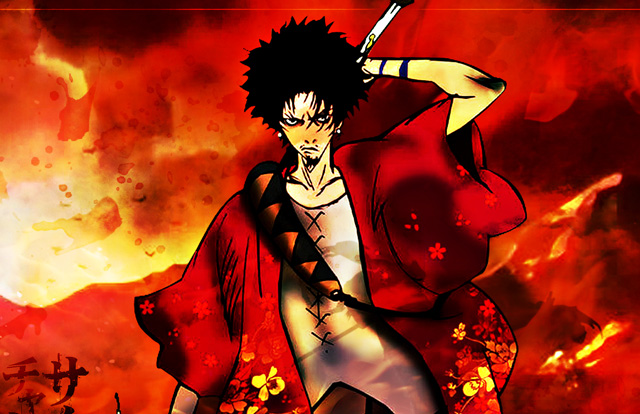One Nerd’s Guide To Speaking On Race In America

Gracious reader, forgive me in advance if this article seems opinionated. We all have opinions, and as a black woman — living in soon-to-be 2015 America — no, I don’t think we live in a “post racial society” nor should anyone else. Hopefully many of you are up to speed on the recent events involving race happening all over this country. If it’s not a police shooting of an unarmed black male, it’s a racial remark about our very own president by a celebrity or big film exec. (Ed. note: This refers to the comments by Sony executives about Pres. Obama’s supposed preference in movie stars. We at Nerd Caliber choose not to link to documents procured through a criminal hack. They are readily available elsewhere via a simple Google search.) Because I believe black lives are not the only things at stake here, I thought it would be useful to create a guide that might help further conversations and bring about understanding in a society that — and forgive me for lack of a better phrase — isn’t as black and white as it seems.
I can’t believe in a country that is suppose to be so “awesome” as some as Andrea Tantaros of Fox News puts it, I still have to talk about race in the year 2015. It’s still a huge motivator for violence and discrimination on many levels and affects many groups of people. A disclaimer before you read further: This isn’t a cut and dry subject that can be spoken about as if one group is guilty and another is a victim. No, racism can come in many forms from many racial groups and that is why it needs to be addressed. It’s still very prevalent in our society and we, in all of our nerdy glory, are a subgroup of that society. So if something is affecting society, it’s affecting us as well.
That is why I created this short list of how to talk about race issues in America, amongst the nerdiest of us, and why it’s important to talk about it as often as possible. It is important to note that as I said before, it’s not black and white. There are always outlier situations. Try not to look at the information as in general, but in outstanding numbers.
This didn’t happen over night and shouldn’t be treated as if it did.
If you’re not black or latino and haven’t been following the history of this country, you may think that this influx of hashtags like #BlackLivesMatter and #IcantBreathe is a sudden and explosive response to a few black male run-ins with the law. This is far from the case. People of color being targeted by the police has been a long outstanding issue. So when talking about these issues, it’s important to know and speak with facts. According to the Washington Post. a federal report in 2011 showed that “black drivers are 31 percent more likely to be pulled over than whites; they are more than twice as likely to be subject to police searches as white drivers; and they are nearly twice as likely to not be given any reason for the traffic stop, period.” It’s important to note that traffic stops are not police shooting deaths, but the correlation is still there. We don’t live in a post racial society and we should talk more about it.
This isn’t just about the police, civilians are killing young black males also because “they feared for their life.”
Trayvon Martin, Jordan Davis, Renisha McBride. Do any of these names ring a bell? The underlining theme behind the stories of their deaths is the same; fear. Irrational fear if I may say so. It seems our once brave and patriotic Americans have become these little quivering balls of anxiety and unrest. And though that’s not about race, the outcome is affecting a lot of people of color. And these people and their names are not being associated as victims of skittish gun owners, but of their own undoing and debauchery. It’s important to talk about how many people in this country either go silent or praise the outcome of shooting deaths based on information that had nothing to do with the situation in the first place. Trayvon Martin left his home to buy snacks and never came back. A child is dead. No amount of previous drug testing or school disciplinary records should change that fact. But very often it does. I’ll go further into that in a second.
Do you like to cosplay? Because it just got dangerous.
As if the cosplaying community didn’t have enough problems to deal with, here comes another. After the shooting death of Darrien Hunt in Ohio this year the phrase “cosplaying while black” no longer means what the Internet intended. Hunt was shot four times in the back by police while dressed as Mugen from Samurai Champloo. There’s a lot of blame being put on him for carrying a toy replica of a sword, but I’m unsure as to why because Ohio is an open-carry state. It’s important to note that the sword was sheathed and before the altercation pictures were taken of Hunt and police casually chatting. If nothing else I’ve written in this article upsets you, this one should. NO ONE, I repeat NO ONE should be killed over their hobby, regardless of how unorthodox. And even more unfortunate is that there are more stories of people with toys being shot and killed. Tamir Rice was shot in Cleveland within a matter of seconds of police arriving while he played with a pellet gun outside. Another Ohio man, John Crawford, was shot and killed immediately inside of a Wal-Mart and he was just carrying an air rifle that the store itself was selling!
Black on black crime shouldn’t be a counterpoint.
This is about an unjust loss of human life. Period. Focus, and I mean really focus on this one here. Regardless of what the victim was supposedly doing, they ended up in the morgue. What isn’t blatantly being said by protesters — or reported in the news — is that people want accountability. We want people to be held accountable when they murder other people. We are a democracy. Not that you should have to explain it — but you will — when black men shoot and kill other black men, they often go to jail. They get arrested, they see a judge, and they are tried for their crimes. So yes, black on black crime is a problem that should be addressed, just like white on white crime. But that is not the case in most of these stories and that is why people are upset. No arrest. No judge. No day in court, and that is very disturbing and flat out wrong.
I know it’s an uncomfortable subject, but if more people spoke about it with the people they cared about, I think it could help bring much needed reform to not only the way the police handle confrontations, but how we all do.



